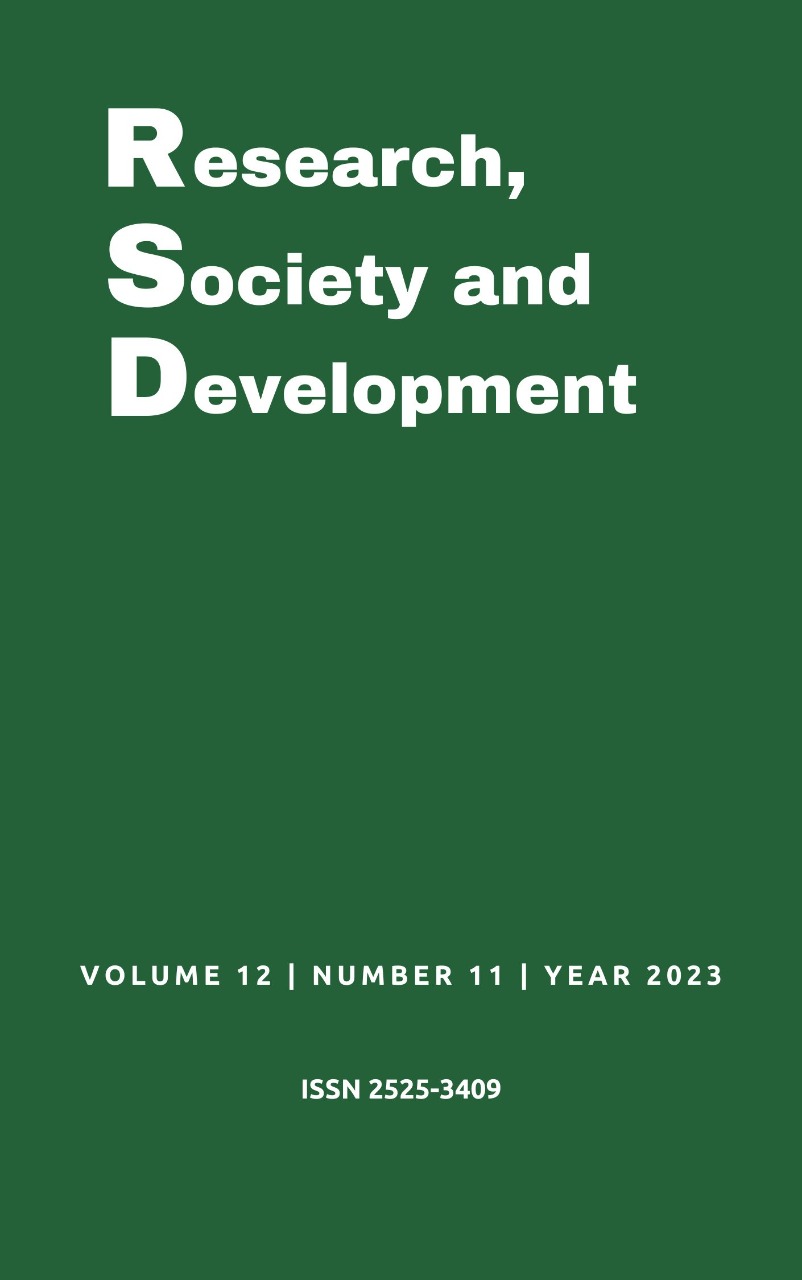Automated temperature and sanitization measurement totem with Arduino in Tinkercad
DOI:
https://doi.org/10.33448/rsd-v12i11.43742Keywords:
Automated totem, Hand sanitizer, Temperature, COVID-19, Tinkercad.Abstract
The 2019 Global Pandemic has plagued the world due to the high degree of contamination and the risk of death for people with physiological condition. One of the symptoms of this infection is the presence of fever, and during the peak of the disease, measurements of temperatures were performed with laser thermometers by employees at a small distance from the citizen. Although hand hygiene has always been important, it has become crucial during the pandemic to adopt rigorous effective hand hygiene practices to contain the spread of the virus. The simple act of hand hygiene not only prevents them from becoming disease-carrying vehicles, but is also crucial in places where pathogens are common, such as hospitals. In this scenario, an experimental research was conducted, based on the computer model developed, it became possible to create an autonomous totem capable of droping hand sanitizer into the user' hand and measuring body temperature without direct human touch. This concept was designed through Tinkercad simulation platform, which offers the simulation of electronic circuits and their use in a similar way to physical form. The implementation of the totem proved to be feasible, allowing the start of the parameters metioned above with no need of users physical contact and highlighting the feasibility of automation to enhance the combat against COVID-19.
References
Beise, M. (2016). Automação industrial aliada à produção enxuta: caminhos para melhoria e otimização de processos. (Dissertação de Mestrado). Universidade de Santa Cruz do Sul – UNISC.
Beni, G. M., Gomes, I. P., Carvalho, J. E., Koga, J. N., Silva, L. G. P., Marques, G. L., & de Almeida, B. M. M. (2021). Eficácia da aferição de temperatura corporal no combate a COVID-19: uma revisão bibliográfica. Revista de Medicina, 100(4), 375-379.
Bielecki, M., Crameri, G. A. G., Schlagenhauf, P., Buehrer, T. W., & Deuel, J. W. (2020). Body temperature screening to identify SARS-CoV-2 infected young adult travellers is ineffective. Travel medicine and infectious disease, 37, 101832
Couto, M. T., Barbieri, C. L. A., & Matos, C. C. D. S. A. (2021). Considerações sobre o impacto da covid-19 na relação indivíduo-sociedade: da hesitação vacinal ao clamor por uma vacina. Saúde e Sociedade, volume 30, página 1-11.
Dandekar, H., Deo, S., Deo, S., Date, S., & Chougule, Y. (2021, November). Internet of things based user identification and hand sanitization system with non-contact temperature measurement. In 2021 Fifth International Conference on I-SMAC (IoT in Social, Mobile, Analytics and Cloud)(I-SMAC) (pp. 70-77).
IEEE.
De Almeida, T. C., & de Andrade, J. A. B. (2023). Benefícios e Desafios Da Indústria 4.0 e o Impacto durante a Pandemia. Revista Ibero-Americana de Humanidades, Ciências e Educação, 9(1), 245-259.
De Oliveira, S. M. L., Robes, A. V., Santos, J. T., Amantea, D. V., & D'Alpino, P. H. (2021). Resgate da Valorização da Higienização das Mãos em Tempos de Pandemia. Ensaios e Ciência C Biológicas Agrárias e da Saúde, 25(2), 206-213.
Gupta, A., & Kumar, R. (2020). Novel design of automatic sanitizer dispenser machine based on ultrasonic sensor. Zeichen Journal, 6(8), 228-233.
Madeiro, C. (2020). Covid-19 já é a maior causa de mortes no Brasil registrada em um único ano.
McRoberts, M. (2018). Arduino básico. Novatec Editora.
Mondini, F., de Souza, R. A., Izaias, M. G. L., Dias, J. P. G., & Alves, E. R. (2023). A Construção de um semáforo no Tinkercad. Expressa Extensão, 28(1), 191-201.
Muratori, J. R., & Dal Bó, P. H. (2011). Capítulo I Automação residencial: histórico, definições e conceitos. O Setor elétrico, 70-77.
Ogoina, D. (2011). Fever, fever patterns and diseases called ‘fever’–a review. Journal of infection and public health, 4(3), 108-124.
Redação Wishbox. (2017, December 6). Tinkercad: O Que é, Download de Como Criar Seu Modelo 3D. Wishbox Technologies.
Ribeiro, M., Nisi, V., Prandi, C., & Nuneset, N. (2020). A data visualization interactive exploration of human mobility data during the COVID-19 outbreak: a case study 2020 IEEE Symposium on Computers and Communications (ISCC), 1–6. 10.1109/ISCC50000.2020.9219552
Rusimamto, P. W., Nurhayati Nurhayati, E. Y., Reza Rahmadian, A. W., & Much Ade Dermawan. (2020). Automatic Hand Sanitizer Container to Prevent the
Spread of Corona Virus Disease. Proceedings of the International Joint Conference on Science and Engineering (IJCSE 2020), Advances in Engineering Research.
Santos, M. C. (2022). Indústria 4.0: impactos disruptivos causados na indústria, economia e sociedade durante o período pandêmico da COVID-19. (Trabalho de Conclusão de Curso). Universidade Federal de Ouro Preto - UFOP.
Severino, A. J. (2017). Metodologia do trabalho científico. Cortez editora.
Srihari, M. M. (2020). "Self-Activating Sanitizer With Battery Imposed System For Cleansing Hands," 2020 Second International Conference on Inventive. Research in Computing Applications (ICIRCA), 1102-1105, 10.1109/ICIRCA48905.2020.9183347.
World Health Organization. (2020). Coronavirus disease 2019 (COVID-19): situation report, 73.
Downloads
Published
Issue
Section
License
Copyright (c) 2023 Maria Vitória Figueira de Araújo; Thaysa Gabriela de Aguiar Costa; Arley Silva Rossi

This work is licensed under a Creative Commons Attribution 4.0 International License.
Authors who publish with this journal agree to the following terms:
1) Authors retain copyright and grant the journal right of first publication with the work simultaneously licensed under a Creative Commons Attribution License that allows others to share the work with an acknowledgement of the work's authorship and initial publication in this journal.
2) Authors are able to enter into separate, additional contractual arrangements for the non-exclusive distribution of the journal's published version of the work (e.g., post it to an institutional repository or publish it in a book), with an acknowledgement of its initial publication in this journal.
3) Authors are permitted and encouraged to post their work online (e.g., in institutional repositories or on their website) prior to and during the submission process, as it can lead to productive exchanges, as well as earlier and greater citation of published work.


